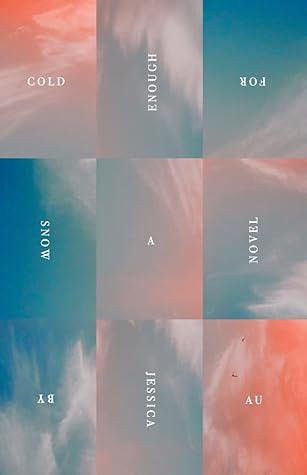More on this book
Community
Kindle Notes & Highlights
my mother stayed close to me, as if she felt that the flow of the crowd was a current, and that if we were separated, we would not be able to make our way back to each other, but continue to drift further and further apart.
Maybe it’s good, I said, to stop sometimes and reflect upon the things that have happened, maybe thinking about sadness can actually end up making you happy.
I wanted to talk more about this, if only to chase the thought further, to pin it down for myself, but I knew too that she needed, and wanted, to believe in such things: that my sister was generous and happiest in the company of others, that I should be careful with money in the month of May, so I said nothing.
The dress, my sister said, was both ugly and expensive, but her daughter had seen something in it, something that connected to a feeling deep inside her, that she was not yet old enough to express.
The wand had been filled with glitter and water, so that the contents tumbled magically from one end to the other depending on how you tilted it. The object had been precious to us both and now neither of us could remember why she had broken it, only our devastation once the act had been done.
Yet now, my sister could not harness that feeling, only the memory of it, or not even that, but something even more remote.
We asked our friends, all of whom were frank and honest. Some of them said that it was possible to find a way, especially as their children got older. Others said that all the weakest points of our relationship would be laid bare. Others still said that it was a euphoric experience, if only you surrendered yourself to it.
I wondered if my mother had ever asked these questions, if she’d ever had the luxury of them.
I thought of how, at the bathhouse, the babies and younger children had clung to their mothers as they bathed them, tipping water over their heads while holding up a hand to protect their eyes, how they did not feel truly separated from each other yet, but rather still part of the same body, the same spirit. There was, I knew, a time when my sister and I would have felt the same.
Now, as her husband, he was so familiar to her that she could barely picture a time when she was not deeply accustomed to him, when she might have started at his presence in a room.
Then, looking not at me but at the hard, white light before us, she said that she believed that we were all essentially nothing, just series of sensations and desires, none of it lasting.
I would behave slightly differently, make minor changes to my face or my actions according to what was needed, like a subject posed before a photographer,
I had the vague thought I had been taught somehow that the best thing was still to be desired, even if you did not desire, even if you did not much like the person who desired you. Where I had learned this, I did not yet know.
My lecturer had said to us once that parents were their children’s fate, not only in the way of the tragedies, but in many other smaller, yet no less powerful ways as well. I knew that if I had a daughter, she would live partly because of the way I had lived, and her memories would be my memories, and she would have no choice in that matter.
I had one vague, exhausted thought that perhaps it was all right not to understand all things, but simply to see and hold them.
whole figure, an animal, or a piece of furniture. I said that in this way too, writing was just like painting. It was the only way that one could go back and change the past, to make things not as they were, but as we wished they had been, or rather as we saw it. I said, for this reason, it was better for her not to trust anything she read.


